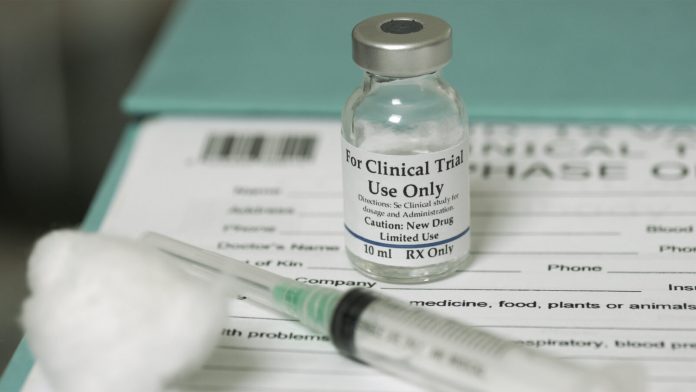The National Institutes of Health is preparing to launch a “flurry” of large clinical trials to test new approaches to treating Covid-19, according to the agency’s director, hoping to expand what for now remains a limited arsenal of therapies to help people with the disease.
In an interview, NIH Director Francis Collins characterized the studies as “really well-powered, rigorously designed clinical trials.”
Among the trials, he said: studies of antiviral monoclonal antibodies to treat Covid-19 in both hospitalized patients and patients who can be treated at home; studies of drugs to quell overreaction of the immune system that the agency has picked from dozens of approved treatments; and studies of blood thinners in very sick Covid-19 patients to prevent problems caused by blood clots. Those treatment studies will be on top of the work that the NIH is also doing on vaccines, including the Covid-19 vaccine being developed by Moderna Therapeutics.
Currently, only two drugs have been shown to be effective in patients with the disease. In clinical trials, Gilead’s remdesivir reduced the time it took patients to recover; dexamethasone, a steroid, prolonged survival in the sickest patients in a study conducted in the U.K.
Collins, who has been at the NIH for 27 years before becoming director in 2009, said he has become “obsessed” with the agency’s efforts to test medicines as treatments for Covid-19. He compared the tense and urgent effort to test Covid-19 treatments and vaccines to his time running the Human Genome Project, when there was a heated competition to deliver results before a private-sector project. He said the current effort is far more important.
“Nobody was going to die if we didn’t get the genome project done on a certain day,” Collins said.
Roughly a hundred people across government, academia, and industry have been working to organize large, systematic trials as part of the NIH’s Accelerating Covid-19 Therapeutic Interventions and Vaccines (ACTIV) effort. The goal of the public-private partnership is to develop a coordinated approach to prioritizing and speeding development of treatments and vaccines.
Researchers have registered with the U.S. government to begin more than 1,200 Covid-19 studies, according to a STAT analysis. But 38% were small — consisting of fewer than 100 patients. That disorganized effort is unlikely to deliver clear answers about what treatments work and what treatments don’t. Collins said that’s why ACTIV is important. “I think it has been just what was needed to keep us from going down a pathway of continued small studies and chaos about results,” Collins said.
The new trials will be part of that effort. Regeneron Pharmaceuticals, which is developing an anti-Covid-19 antibody cocktail and is participating in an NIH trial on using such antibodies for prevention, will not be included in the antibody treatment trial. But Collins said that other major drug makers would be included. The decision of whether to participate in the studies is entirely up to the manufacturers, and he said that he has no complaints when a company, such as Regeneron or, on vaccines, Pfizer, decides it can move faster on its own.
Collins also warned that the science around both treatments and vaccines is complicated and unpredictable, and requires doing lots of different things with the knowledge that some will fail. But the only solution, he said, is to run many studies in parallel.
Collins said the NIH has aimed not to duplicate efforts being undertaken elsewhere, which is why the U.S. studied remdesivir but not dexamethasone. However, the NIH, the U.K., and the World Health Organization all conducted their own randomized studies of hydroxychloroquine in hospitalized patients; all were negative.
Regardless, Collins promised that the government is going to make sure that trials are conducted rigorously “so that you’re not wasting time, money, or people’s willingness to volunteer.” And he promised that despite the need for speed in vaccine development, there would be no cutting corners.
“We will not put something out, and FDA won’t let us, that is not safe and effective. That’s the bottom line,” Collins said. “Even if we come up empty, I will not tolerate the idea that you put something out that’s actually harmful.”
The NIH is also trying to fix another problem: the need for better, faster Covid-19 tests, through a $1.5 billion effort called the Rapid Acceleration of Diagnostics or RADx initiative,which Collins and his colleagues described in an editorial in the New England Journal of Medicine on Wednesday.
Current testing technology based on the polymerase chain reaction “doesn’t seem to work very well in terms of handling the demand when the demand starts going up higher and higher,” Collins said. RADx has settled on a “Shark Tank”-like format where small startups audition technologies to receive NIH support. Applications have come from 600 efforts, of which 27 have entered the shark tank stage; one is getting ready to begin efforts aimed at manufacturing scale up and clinical validation. Most of these efforts, Collins said, are point-of-care tests.
The goal, he said, is to have an impact soon. Said Collins: “We’re not going to invest in any test that can’t be scaled up to sufficient numbers to have an impact in the coming months.”












